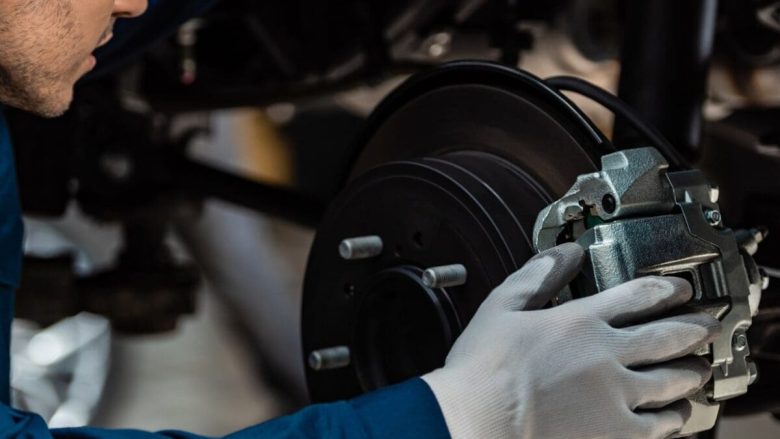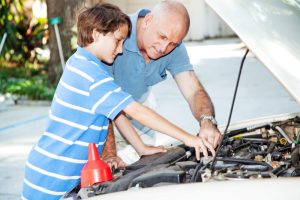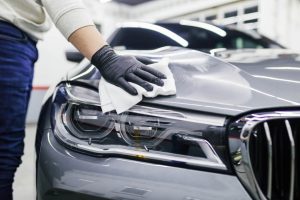One of the most important safety features of a car is the brakes. Brakes bring your car to a safe stop, but if they don’t work properly, you may be less safe on the road. Performing regular maintenance is the best way to keep your brakes working properly and save money on future repairs. Let’s talk about some important brake repair tips that every car owner should know.
1. Regular Inspection:
It is important to check your brakes regularly so that problems can be spotted early. If your brake pads are thin, wear unevenly, or make strange noises when braking, these are signs of wear. If you notice any of these problems, you should have your brakes checked by a professional mechanic.
2. Check the Brake Fluid:
Make sure your brake fluid is always in the correct amount and free of dirt or debris. If the brake fluid is dirty, the braking system may not work properly. If the fluid becomes discolored or contains dirt, it should be flushed out and replaced with new fluid.
3. Replace the Brake Pads
Brake pads need to be replaced regularly because they wear out over time. Most brake pads make a sound to let you know if they are worn. If you hear this noise, replace the brake pads with new ones.
4. Check the Rotor:
Check the brake pads for signs of damage or wear. If you notice gouges, nicks, or deformations on your rotors, you may need to repair or refinish them. Damaged or deformed rotors can cause brakes to squeal, vibrate, and perform poorly.
5. Maintain the Brake Calipers:
Check whether the brake pads are damaged or stuck. Sticky brake calipers can cause uneven brake wear and make them less efficient. If you think your brake calipers are broken, you should have them checked by an experienced mechanic. The caliper should move easily and apply even pressure to the brake pads.
6. Check the Brake Lines:
Check the brake lines for leaks or damage. If brake fluid leaks, the brakes may not work. If you notice leaks in your brake lines, have them inspected and repaired immediately. Also, make sure there is no rust or signs of rust on the brake lines. This can weaken the line and cause brake fluid to leak.
7. Bleeding in the Braking System:
Bleeding the brakes can eliminate air bubbles that can reduce braking efficiency. It is important to bleed your brakes regularly, especially if you replace brake parts or notice that the brake pedal feels soft. Bleeding the brakes can remove any air from the hydraulic system, causing the brake pedal to feel soft or spongy.
8. How to Use the Brakes to See Correctly:
Don’t brake too hard, especially when going downhill. Instead of braking, use the engine brake or downshift to slow down. This can help prevent brake wear and extend their life. Braking too hard can cause the brake components to become too hot, causing them to fade and reducing braking performance.
9. Brake Pads:
If you install your new brake pads correctly, they will last longer and work better. Follow the manufacturer’s instructions for setting up the bed. Installing new brake pads ensures that they wear properly and provide you with the best braking power. If beechwood brake pads are used incorrectly, they can wear and stop unevenly.
10. Professional Inspection:
Have your brakes checked regularly by a professional mechanic. They can identify problems early and prevent expensive repairs later. After having it inspected by a professional, you may also discover problems that you missed during your own inspection. They can also look for signs of damage or wear to other brake components, such as brake lines, calipers, and rotors. Inspecting your home regularly can help you spot small problems before they get worse. This saves you repair time and money.
Conclusion:
Maintaining your car’s brakes is important for your road safety. By following these important brake repair tips, you can ensure that your brakes are in good condition and can stop you when you need them. By regularly checking the fluid and replacing the brake pads, you can prevent damage to your brakes and extend their life. Also, make sure you have your brakes checked regularly by a professional so that any problems can be caught early. By taking good care of your brakes, you can drive with peace of mind, knowing that your car will always come to a safe stop.
FAQs:
1. How often should I check my brakes?
Depending on how often you drive and the manufacturer’s specifications, you should have your brakes inspected at least every six months, or every 9,000 to 12,000 miles. Another thing you should do is check the brakes for wear or changes in the way they work.
2. When should I replace my brake pads with new ones?
When the brake pads are at least 1/8 inch worn, it is time to replace them with new brake pads. You should also get new brake pads if you hear a squealing or grinding noise when braking, or if you notice that your car is taking longer than normal to stop.
3. How do you assess whether brake fluid needs to be replaced?
You should change your brake fluid every two years, or as often as your car manufacturer says. In addition, if your brake fluid looks dirty or discolored, or if your brake pedal feels soft or spongy, you should replace it.
4. How do you keep the brake pads in good condition?
To keep your brake pads in good condition, check them regularly for signs of damage or sticking. Clean with brake cleaner and lubricate the brake caliper bolts with heat-resistant grease. Also, make sure the caliper pistons move smoothly and replace them with new ones if they are damaged or worn.
5. Can I replace the brake pads and rotors myself?
You can replace brake pads and rotors yourself, but it is best to have them replaced by a professional. Improper installation can lead to brake failure and serious accidents. Braking systems are very important for safety. If you’re not sure you can properly replace your brake pads and rotors, you should have a professional do it.



